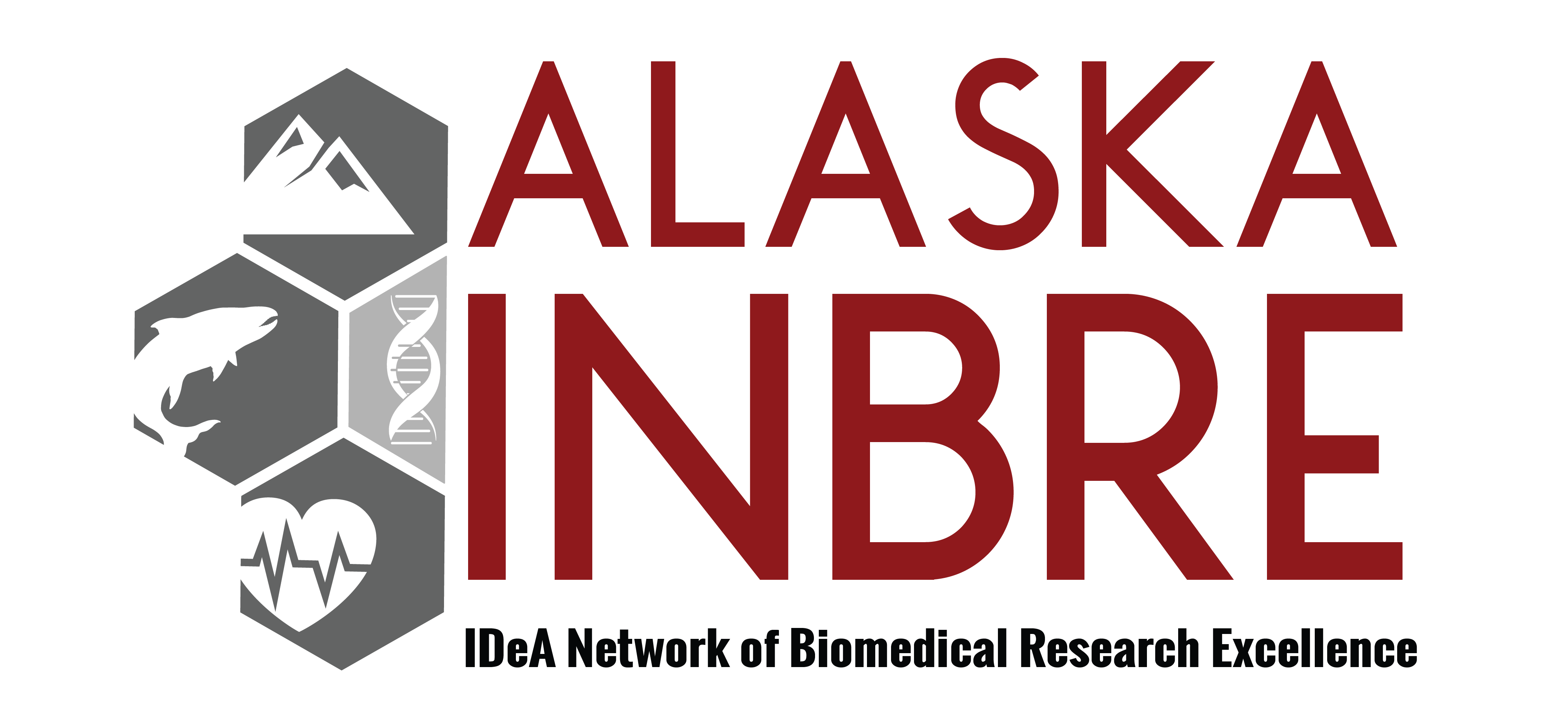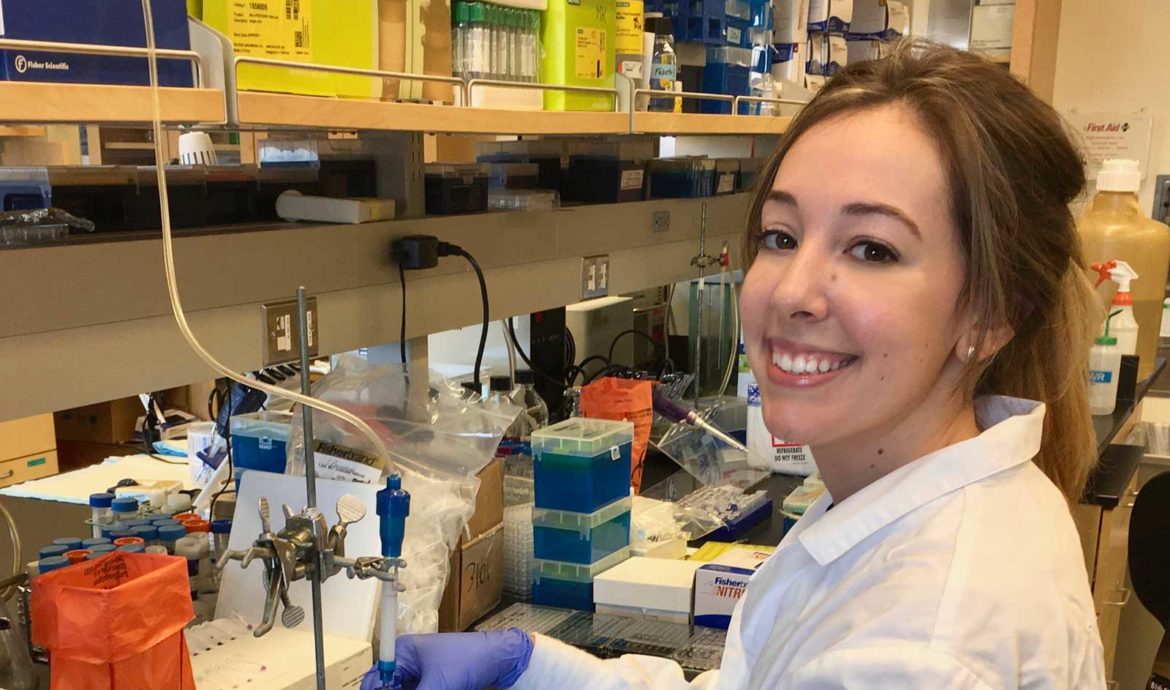New liposomal targeting method developed by INBRE Graduate Research Assistantship awardee, Alex Francian, found to successfully reduce and eradicate tumors in mice.
ALEX FRANCIAN is a 2017 INBRE Graduate Research Assistantship awardee who works in the lab of Max Kullberg at the University of Alaska Anchorage. Francian’s cancer immunotherapy research was published in the International Journal of Nanomedicine in July 2017 and has yielded some very promising results. The lab has developed a liposomal targeting method to deliver compounds, including drugs, to immunosuppressive cells in the immune system, stimulating them to recognize and attack cancerous cells. To accomplish this, Francian developed a liposome with a small molecule known as OPSS (orthopyridyl disulfide) conjugated to its surface. The small OPSS molecule binds to complement C3, a protein of the immune system that targets the liposomes for uptake by cells that process antigens, and is internalized by macrophages and other cell types. The liposomes Francian developed have successfully induced a systemic anti-tumor response, reducing and even eradicating tumors in clinical trials with mice. Additionally, no elevated levels of enzymes indicative of liver damage were detected, suggesting that the liposomal targeting method produces no liver toxicity. The implications of this research on the future of cancer treatment are profound.
Francian will be moving onto a new mouse model and tumor cell line, continuing with her current project but using real tumor antigens instead of the previous model system. The same liposomes (with the OPSS and complement C3) will be used, but tumor antigens will be delivered from a melanoma tumor cell line to mice with established melanoma tumors. “Working with mice is definitely the most interesting part of this research,” she comments, “It is very rewarding to have something work in a cell line and then translate that into a mouse model.”
Francian finds the most enjoyable part of her GRA experience to be the ability to travel to different scientific conferences to present her research, as well as to see other researcher’s projects. “INBRE has allowed me to continue to do full-time research in the lab and commit the majority of my time to my research project. They have also provided me with numerous travel grants to present my research at conferences around the country, and soon out of the country! I enjoy working in a university environment among other students with vastly different projects and ideas. What I really like about the One Health concept is that it brings researchers from different fields together, with a common interest in promoting the health of people, animals, and the environment.”
This fall, Francian won the award for best poster at the Alaska INBRE research retreat in Denali, receiving a travel grant to attend and present her research at the 2017 NIH Western Regional Conference in Jackson Hole, Wyoming. At the end of the year, Francian also presented at the 2017 WWAMI Medical Research Forum in Anchorage. Alaska INBRE is proud to support students like Francian who are committed to conducting good science in the name of One Health. Congratulations, Alexandra! Click here to access Francian’s publication in the International Journal of Nanomedicine.
Photo courtesy of Matt Clark

